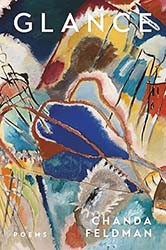In Claire Stanford’s poignant, wry debut novel, Happy For You, the protagonist Evelyn Kominsky Kumamoto acknowledges that she doesn’t feel “like a real person.” At thirty-one years old, and four years into a philosophy PhD, she is ambivalent about what she wants, who she is, and how technology functions in our society. She feels like she’s on the outside, looking in at everyone else, who all seem to have it figured out.
Evelyn has a few reasons for feeling isolated from others: her mother died when she was fourteen, and her relationship with her father is formal and distant. She works at a tech company in the Bay Area and, as a philosopher, struggles with their goals of fitting human emotion into a simple wellness app. She is Japanese and Jewish and doesn’t know where she fits into either culture.
The novel begins when Evelyn takes a break from her philosophy dissertation to work for the “third-most-popular internet company.” Evelyn appreciates the high salary but commits the Silicon Valley offense of questioning the ethics of the app. The app works by pinging probing questions to her phone every day or so. Answering them is supposed to increase happiness. Evelyn is skeptical but tries to use the app to become happier. Of course, life has other ways of providing opportunities for Evelyn to be happy — and sad, disturbed, and present, and everything else, sometimes all at once.
Through the clever plot twists in Happy For You, Evelyn comes to understand that she’s not alone. Despite her angst, she is observant, funny, and loving. It is a joy to watch her with her somewhat clueless boyfriend, Jamie, in moments of intense vulnerability and hope; to accompany her in memories of her mother; and to haltingly grow closer to her father as he embarks on a new relationship with Kumiko, who just can’t quite believe that Evelyn doesn’t speak Japanese.
The brilliance of Happy For You is in how it manages to convey many emotions and many lessons. As a satirical novel about tech culture, it’s unsettling and comic. As a novel of Evelyn’s growth, it’s both ironically removed and warmly intimate. It has, as a character says late in the story, “hybrid vigor,” and it will keep you reading, laughing, crying, and hoping late into the night.






